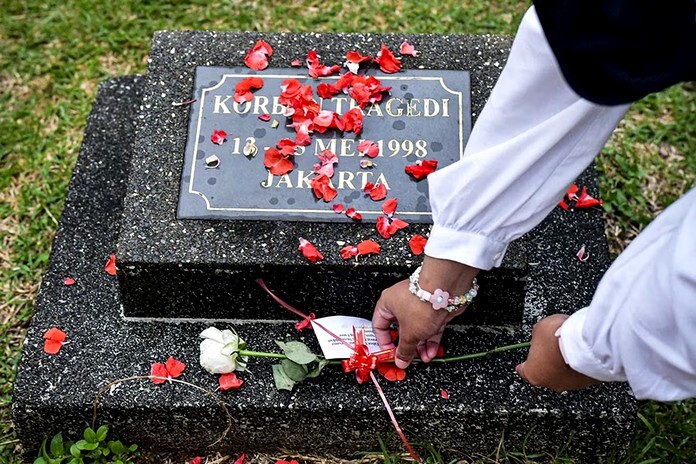27 Years of Reform: Amnesty International Highlights Decline in Political Freedoms and Social Rights in Indonesia
JAKARTA, RAKYAT NEWS – On the 27th anniversary of Indonesia’s Reform era, Amnesty International Indonesia warns that the country is experiencing a serious erosion of human rights due to ongoing authoritarian policies that threaten civil liberties, political freedoms, and social justice.
Amnesty International Indonesia Executive Director Usman Hamid said the country is veering away from the ideals of Reform, with authoritarian legal frameworks increasingly benefiting a select few. “When repressive laws and practices flourish, the state and civil society must act together to restore the mandate of human rights promised by Reform. The Constitutional Court’s latest decisions are one of the few remaining hopes,” Usman stated.
Several international indicators reflect the decline. Freedom House recorded a drop in Indonesia’s democracy score from 62 in 2019 to 57 in 2024. The 2025 World Press Freedom Index placed Indonesia at 127 out of 180 countries, while the Economist Intelligence Unit continues to label Indonesia a “flawed democracy.” V-Dem Institute even downgraded Indonesia from an electoral democracy to an electoral autocracy.
Amnesty points to this democratic regression as stemming from weakened rule of law and increasing attacks on civil and press freedoms. “Even the tragedies of May 1998, like the Trisakti shootings or mass rapes, remain unpunished. These are extraordinary violations that are now being erased through revisionist history,” said Usman.
Crackdowns on civil freedoms are evident in recent arrests and censorship. A student from the Bandung Institute of Technology (ITB) faces up to 12 years in prison for a meme of the president. Artists and performers, including painter Yos Soeprapto and several theater and music groups, have faced suppression of their works.
Between 2019 and 2024, Amnesty documented at least 530 cases of criminalization of expression using the controversial Electronic Information and Transactions (ITE) Law, with 563 individuals affected. Most cases stemmed from police cyber patrols and local government reports. Most recently, a student from Diponegoro University was arrested for “unlawful confinement” during a May Day protest.
The new Criminal Code (KUHP) continues to raise concerns with provisions that threaten freedom of expression, including laws on treason, blasphemy, and insulting state institutions. Plans to revise the Criminal Procedure Code and the Police Law seem more focused on inter-agency power struggles than safeguarding human rights.
Attacks on press freedom are also rising. Amnesty and the Journalist Safety Committee recorded at least 29 journalists targeted between January and May 2025 alone. The proposed Broadcasting Law may further restrict investigative journalism and media criticism.
Amnesty also notes violations of social rights driven by development and investment policies that echo the authoritarian era. From Papua to Sumatra, land grabbing, intimidation, torture, extrajudicial killings, and arbitrary detention continue unchecked. “If the state won’t protect its people, where else can they turn?” Usman asked.
Economic inequality is also worsening. According to Indonesia’s Central Statistics Agency (BPS), the Gini coefficient rose from 0.379 in March 2024 to 0.381 in September 2024, showing an increasing wealth gap between rich and poor.
Amnesty concludes that Reform is at a breaking point. “The authoritarian regime may be gone, but its legacy persists. If we fail to hold past perpetrators accountable and whitewash history, we risk repeating our darkest chapters,” Usman warned. Despite this, he remains hopeful, pointing to the growing number of critical voices demanding change. (Uki Ruknuddin)



























Tinggalkan Balasan